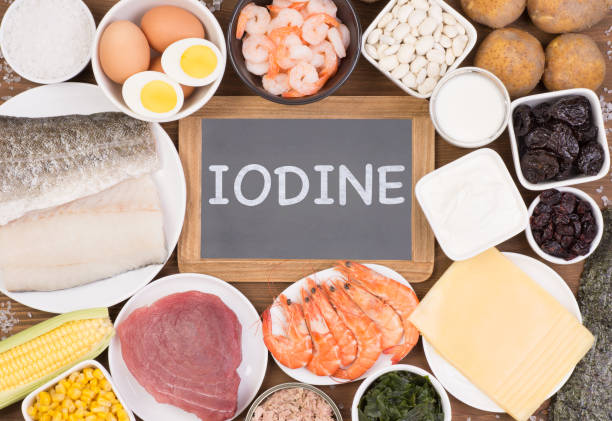
Mental Health and Iodine
Mental health is a complex tapestry woven from various factors, including genetics, lifestyle, and nutrition. While we often associate mental health with emotions and thoughts, it’s crucial to recognize the profound impact that nutrients like iodine can have on our psychological well-being. In this article, we’ll explore the connection between iodine deficiency and mental health and provide you with a DIY home test guide to assess your iodine levels.
The Iodine-Mental Health Connection
Iodine is an essential mineral that plays a pivotal role in the production of thyroid hormones. These hormones, namely thyroxine (T4) and triiodothyronine (T3), are crucial for regulating our metabolism and energy production. But their significance doesn’t end there. Thyroid hormones also influence the development and functioning of our brain, making iodine an essential nutrient for mental health.
Iodine Deficiency and Mental Health
When our bodies lack sufficient iodine, our thyroid’s ability to produce these hormones becomes compromised. This can lead to a range of mental health issues, including:
- Depression: Iodine deficiency may contribute to depressive symptoms, as thyroid hormones help regulate mood.
- Anxiety: Thyroid hormones play a role in the body’s stress response, and an iodine deficiency can exacerbate anxiety.
- Brain Fog: Iodine deficiency might cause cognitive issues, such as difficulty concentrating and memory problems.
- Fatigue: A sluggish thyroid due to iodine deficiency can lead to chronic fatigue and low energy levels.
- Mood Swings: An imbalanced thyroid can disrupt the balance of neurotransmitters in the brain, leading to mood swings.
Testing for Iodine Deficiency at Home
While a healthcare professional can provide a definitive diagnosis of iodine deficiency, there’s a simple DIY test you can do at home to assess your iodine levels.
Materials Needed:
- A bottle of iodine tincture (readily available at most pharmacies)
- A cotton ball
- A clean, dry piece of skin (such as the inside of your forearm)
Steps:
- Before bedtime, paint a small, square patch of iodine on the clean, dry skin. Let it dry.
- Observe the iodine patch in the morning. If it has faded significantly or disappeared, it may suggest that your body absorbed the iodine, indicating a potential deficiency.
- Keep in mind that this test is not definitive but can serve as an initial indicator. Consult a healthcare professional for a complete evaluation.
Maintaining Healthy Iodine Levels
If you suspect iodine deficiency or want to prevent it, consider incorporating iodine-rich foods into your diet, such as seafood (particularly seaweed), and iodized salt. However, always be mindful of the balance, as excessive iodine intake can also have adverse effects.
Here is a list of foods that are naturally high in iodine:
- Seaweed and Seaweed Products: Seaweed is one of the richest sources of iodine. Varieties like kelp, nori, wakame, and dulse are excellent choices. You can use seaweed in soups, salads, or as a sushi wrap.
- Iodized Salt: Common table salt that is iodized contains iodine. It’s a simple way to ensure you get enough iodine in your diet. However, it’s essential not to consume excessive salt due to its potential impact on blood pressure.
- Cranberries: Some fruits, like cranberries, can provide a small amount of iodine.
- Beans: Certain legumes, such as navy beans and lima beans, contain iodine, albeit in smaller quantities compared to seafood and dairy.
- Prunes: Prunes can be a surprising source of iodine, offering a small amount of this essential mineral.
- Strawberries: Strawberries are another fruit that contains iodine, although the levels are relatively low.
- Baked Potatoes: Potatoes can provide a modest amount of iodine, especially when consumed with the skin.
- Sushi: Sushi rolls, with their combination of seaweed and rice can be a flavorful way to incorporate iodine into your diet.
Iodine content in foods can vary depending on factors like soil quality and farming practices. If you’re concerned about your iodine intake, consider consulting a healthcare professional for personalized advice and guidance.
Mental well-being and mood disorders are intimately linked to the nutrients we fuel our bodies with. One often overlooked but crucial mineral for maintaining a stable mood is iodine. The DIY iodine deficiency test mentioned earlier can offer an initial glimpse into your iodine levels, but it should always be followed by a comprehensive evaluation by a healthcare professional, especially if you are experiencing mood disorders. Prioritizing a diet rich in iodine can be a significant step toward achieving better mental health. Remember, taking care of your mental well-being involves addressing the interconnectedness of your mind and body.